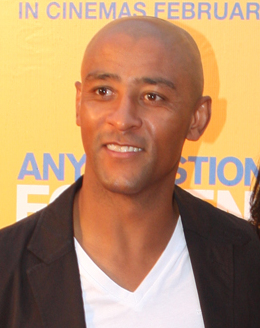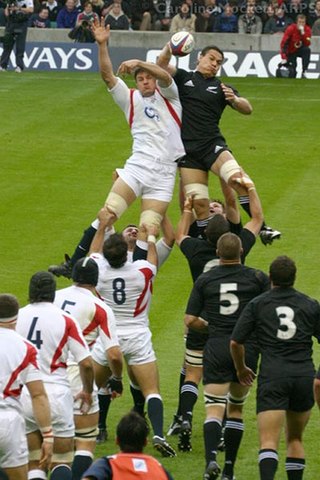| Year | Date | Venue | Home | Score | Away | Series
Winner | Result | Trophy
Holder |
|---|
| 1932 [lower-alpha 2] | 2 July | Sydney Cricket Ground, Sydney | Australia  | 22–17 |  New Zealand New Zealand |  | 2–1 |  |
| 16 July | Exhibition Ground, Brisbane | 3–21 |
| 23 July | Sydney Cricket Ground, Sydney | 13–21 |
| 1934 [lower-alpha 2] | 11 August | Sydney Cricket Ground,Sydney | Australia  | 25–11 |  New Zealand New Zealand |  | 1–0 |  |
| 25 August | Sydney Cricket Ground, Sydney | 3–3 |
| 1936 [lower-alpha 2] | 5 September | Athletic Park, Wellington | New Zealand  | 11–6 |  Australia Australia |  | 2–0 |  |
| 12 September | Carisbrook, Dunedin | 38–13 |
| 1938 [lower-alpha 2] | 23 July | Sydney Cricket Ground, Sydney | Australia  | 9–24 |  New Zealand New Zealand |  | 3–0 |  |
| 6 August | Exhibition Ground, Brisbane | 14–20 |
| 13 August | Sydney Cricket Ground, Sydney | 6–14 |
| 1946 [lower-alpha 2] | 14 September | Carisbrook, Dunedin | New Zealand  | 31–8 |  Australia Australia |  | 2–0 |  |
| 28 September | Eden Park, Auckland | 14–10 |
| 1947 [lower-alpha 2] | 14 June | Exhibition Ground, Brisbane | Australia  | 5–13 |  New Zealand New Zealand |  | 2–0 |  |
| 28 June | Sydney Cricket Ground, Sydney | 14–27 |
| 1949 [lower-alpha 2] | 3 September | Athletic Park, Wellington | New Zealand  | 6–11 |  Australia Australia |  | 2–0 |  |
| 24 September | Eden Park, Auckland | 9–16 |
| 1951 [lower-alpha 2] | 23 June | Sydney Cricket Ground, Sydney | Australia  | 0–8 |  New Zealand New Zealand |  | 3–0 |  |
| 7 July | Sydney Cricket Ground, Sydney | 11–17 |
| 21 July | The Gabba, Brisbane | 6–16 |
| 1952 [lower-alpha 2] | 6 September | Lancaster Park, Christchurch | New Zealand  | 9–14 |  Australia Australia | Draw | 1–1 |  |
| 13 September | Athletic Park, Wellington | 15–8 |
| 1955 [lower-alpha 2] | 20 August | Athletic Park, Wellington | New Zealand  | 16–8 |  Australia Australia |  | 2–1 |  |
| 3 September | Carisbrook, Dunedin | 8–0 |
| 17 September | Eden Park, Auckland | 3–8 |
| 1957 [lower-alpha 2] | 25 May | Sydney Cricket Ground, Sydney | Australia  | 11–25 |  New Zealand New Zealand |  | 2–0 |  |
| 1 June | Exhibition Ground, Brisbane | 9–22 |
| 1958 [lower-alpha 2] | 23 August | Athletic Park, Wellington | New Zealand  | 25–3 |  Australia Australia |  | 2–1 |  |
| 6 September | Lancaster Park, Christchurch | 3–6 |
| 20 September | Epsom Showgrounds, Auckland | 17–8 |
| 1962 [lower-alpha 3] | 26 May | Exhibition Ground, Brisbane | Australia  | 6–20 |  New Zealand New Zealand |  | 2–0 |  |
| 4 June | Sydney Cricket Ground, Sydney | 5–14 |
| 1962 [lower-alpha 4] | 25 August | Athletic Park, Wellington | New Zealand  | 9–9 |  Australia Australia |  | 2–0 |  |
| 8 September | Carisbrook, Dunedin | 3–0 |
| 22 September | Eden Park, Auckland | 16–8 |
| 1964 [lower-alpha 2] | 15 August | Carisbrook, Dunedin | New Zealand  | 14–9 |  Australia Australia |  | 2–1 |  |
| 22 August | Lancaster Park, Christchurch | 18–3 |
| 29 August | Athletic Park, Wellington | 5–20 |
| 1967 | 19 August | Athletic Park, Wellington | New Zealand  | 29–9 |  Australia Australia |  | 1–0 |  |
| 1968 [lower-alpha 2] | 15 June | Sydney Cricket Ground, Sydney | Australia  | 11–27 |  New Zealand New Zealand |  | 2–0 |  |
| 22 June | Ballymore, Brisbane | 18–19 |
| 1972 [lower-alpha 2] | 19 August | Athletic Park, Wellington | New Zealand  | 29–6 |  Australia Australia |  | 3–0 |  |
| 2 September | Lancaster Park, Christchurch | 30–17 |
| 16 September | Eden Park, Auckland | 38–3 |
| 1974 [lower-alpha 2] | 25 May | Sydney Cricket Ground, Sydney | Australia  | 6–11 |  New Zealand New Zealand |  | 2–0 |  |
| 1 June | Ballymore, Brisbane | 16–16 |
| 8 June | Sydney Cricket Ground, Sydney | 6–16 |
| 1978 [lower-alpha 2] | 19 August | Athletic Park, Wellington | New Zealand  | 13–12 |  Australia Australia |  | 2–1 |  |
| 26 August | Lancaster Park, Christchurch | 22–6 |
| 9 September | Eden Park, Auckland | 16–30 |
| 1979 [lower-alpha 2] | 28 July | Sydney Cricket Ground, Sydney | Australia  | 12–6 |  New Zealand New Zealand |  | 1–0 |  |
| 1980 [lower-alpha 2] | 21 June | Sydney Cricket Ground, Sydney | Australia  | 13–9 |  New Zealand New Zealand |  | 2–1 |  |
| 28 June | Ballymore, Brisbane | 9–12 |
| 12 July | Sydney Cricket Ground, Sydney | 26–10 |
| 1982 [lower-alpha 2] | 14 August | Lancaster Park, Christchurch | New Zealand  | 23–16 |  Australia Australia |  | 2–1 |  |
| 28 August | Athletic Park, Wellington | 16–19 |
| 11 September | Eden Park, Auckland | 33–18 |
| 1983 | 20 August | Sydney Cricket Ground, Sydney | Australia  | 8–18 |  New Zealand New Zealand |  | 1–0 |  |
| 1984 [lower-alpha 2] | 21 July | Sydney Cricket Ground, Sydney | Australia  | 16–9 |  New Zealand New Zealand |  | 2–1 |  |
| 4 August | Ballymore, Brisbane | 15–19 |
| 18 August | Sydney Cricket Ground, Sydney | 24–25 |
| 1985 | 29 June | Eden Park, Auckland | New Zealand  | 10–9 |  Australia Australia |  | 1–0 |  |
| 1986 [lower-alpha 2] | 9 August | Athletic Park, Wellington | New Zealand  | 12–13 |  Australia Australia |  | 2–1 |  |
| 23 August | Carisbrook, Dunedin | 13–12 |
| 6 September | Eden Park, Auckland | 9–22 |
| 1987 | 25 July | Concord Oval, Sydney | Australia  | 16–30 |  New Zealand New Zealand |  | 1–0 |  |
| 1988 [lower-alpha 2] | 3 July | Concord Oval, Sydney | Australia  | 7–32 |  New Zealand New Zealand |  | 2–0 |  |
| 16 July | Ballymore, Brisbane | 19–19 |
| 30 July | Concord Oval, Sydney | 9–30 |
| 1989 | 5 August | Eden Park, Auckland | New Zealand  | 24–12 |  Australia Australia |  | 1–0 |  |
| 1990 [lower-alpha 2] | 21 July | Lancaster Park, Christchurch | New Zealand  | 21–6 |  Australia Australia |  | 2–1 |  |
| 4 August | Eden Park, Auckland | 27–17 |
| 18 August | Athletic Park, Wellington | 9–21 |
| 1991 [lower-alpha 2] | 10 August | Sydney Football Stadium, Sydney | Australia  | 21–12 |  New Zealand New Zealand | Draw | 1–1 |  |
| 24 August | Eden Park, Auckland | New Zealand  | 6–3 |  Australia Australia |
| 1992 [lower-alpha 2] | 4 July | Sydney Football Stadium, Sydney | Australia  | 16–15 |  New Zealand New Zealand |  | 2–1 |  |
| 19 July | Ballymore, Brisbane | 19–17 |
| 25 July | Sydney Football Stadium, Sydney | 23–26 |
| 1993 | 17 July | Carisbrook, Dunedin | New Zealand  | 25–10 |  Australia Australia |  | 1–0 |  |
| 1994 | 17 August | Sydney Football Stadium, Sydney | Australia  | 20–16 |  New Zealand New Zealand |  | 1–0 |  |
| 1995 | 22 July | Eden Park, Auckland | New Zealand  | 28–16 |  Australia Australia |  | 2–0 |  |
| 29 July | Sydney Football Stadium, Sydney | Australia  | 23–34 |  New Zealand New Zealand |
| 1996 | 6 July | Athletic Park, Wellington | New Zealand  | 43–6 |  Australia Australia |  | 2–0 |  |
| 27 July | Lang Park, Brisbane | Australia  | 25–32 |  New Zealand New Zealand |
| 1997 | 5 July | Lancaster Park, Christchurch | New Zealand  | 30–13 |  Australia Australia |  | 3–0 |  |
| 26 July | Melbourne Cricket Ground, Melbourne | Australia  | 18–33 |  New Zealand New Zealand |
| 16 August | Carisbrook, Dunedin | New Zealand  | 36–24 |  Australia Australia |
| 1998 | 11 July | Melbourne Cricket Ground, Melbourne | Australia  | 24–16 |  New Zealand New Zealand |  | 3–0 |  |
| 1 August | Lancaster Park, Christchurch | New Zealand  | 23–27 |  Australia Australia |
| 29 August | Sydney Football Stadium, Sydney | Australia  | 19–14 |  New Zealand New Zealand |
| 1999 | 24 July | Eden Park, Auckland | New Zealand  | 34–15 |  Australia Australia | Draw | 1–1 |  |
| 28 August | Stadium Australia, Sydney | Australia  | 28–7 |  New Zealand New Zealand |
| 2000 | 15 July | Stadium Australia, Sydney | Australia  | 35–39 |  New Zealand New Zealand | Draw | 1–1 |  |
| 5 August | Wellington Regional Stadium, Wellington | New Zealand  | 23–24 |  Australia Australia |
| 2001 | 11 August | Carisbrook, Dunedin | New Zealand  | 15–23 |  Australia Australia |  | 2–0 |  |
| 1 September | Stadium Australia, Sydney | Australia  | 29–26 |  New Zealand New Zealand |
| 2002 | 13 July | Lancaster Park, Christchurch | New Zealand  | 12–6 |  Australia Australia | Draw | 1–1 |  |
| 3 August | Stadium Australia, Sydney | Australia  | 16–14 |  New Zealand New Zealand |
| 2003 | 26 July | Stadium Australia, Sydney | Australia  | 21–50 |  New Zealand New Zealand |  | 2–0 |  |
| 16 August | Eden Park, Auckland | New Zealand  | 21–17 |  Australia Australia |
| 2004 | 17 July | Wellington Regional Stadium, Wellington | New Zealand  | 16–7 |  Australia Australia | Draw | 1–1 |  |
| 7 August | Stadium Australia, Sydney | Australia  | 23–18 |  New Zealand New Zealand |
| 2005 | 13 August | Stadium Australia, Sydney | Australia  | 13–30 |  New Zealand New Zealand |  | 2–0 |  |
| 3 September | Eden Park, Auckland | New Zealand  | 34–24 |  Australia Australia |
| 2006 | 8 July | Lancaster Park, Christchurch | New Zealand  | 32–12 |  Australia Australia |  | 3–0 |  |
| 29 July | Lang Park, Brisbane | Australia  | 9–13 |  New Zealand New Zealand |
| 19 August | Eden Park, Auckland | New Zealand  | 34–27 |  Australia Australia |
| 2007 | 30 June | Melbourne Cricket Ground, Melbourne | Australia  | 20–15 |  New Zealand New Zealand | Draw | 1–1 |  |
| 21 July | Eden Park, Auckland | New Zealand  | 26–12 |  Australia Australia |
| 2008 | 26 July | Stadium Australia, Sydney | Australia  | 34–19 |  New Zealand New Zealand |  | 3–1 |  |
| 2 August | Eden Park, Auckland | New Zealand  | 39–10 |  Australia Australia |
| 13 September | Lang Park, Brisbane | Australia  | 24–28 |  New Zealand New Zealand |
| 1 November | Hong Kong Stadium, Hong Kong | New Zealand  | 19–14 |  Australia Australia |
| 2009 | 18 July | Eden Park, Auckland | New Zealand  | 22–16 |  Australia Australia |  | 4–0 |  |
| 22 August | Stadium Australia, Sydney | Australia  | 18–19 |  New Zealand New Zealand |
| 19 September | Wellington Regional Stadium, Wellington | New Zealand  | 33–6 |  Australia Australia |
| 31 October | National Stadium, Tokyo | New Zealand  | 32–19 |  Australia Australia |
| 2010 | 31 July | Docklands Stadium, Melbourne | Australia  | 28–49 |  New Zealand New Zealand |  | 3–1 |  |
| 7 August | Lancaster Park, Christchurch | New Zealand  | 20–10 |  Australia Australia |
| 11 September | Stadium Australia, Sydney | Australia  | 22–23 |  New Zealand New Zealand |
| 30 October | Hong Kong Stadium, Hong Kong | Australia  | 26–24 |  New Zealand New Zealand |
| 2011 | 6 August | Eden Park, Auckland | New Zealand  | 30–14 |  Australia Australia | Draw | 1–1 |  |
| 27 August | Lang Park, Brisbane | Australia  | 25–20 |  New Zealand New Zealand |
| 2012 | 18 August | Stadium Australia, Sydney | Australia  | 19–27 |  New Zealand New Zealand |  | 2–0 |  |
| 25 August | Eden Park, Auckland | New Zealand  | 22–0 |  Australia Australia |
| 20 October | Lang Park, Brisbane | Australia  | 18–18 |  New Zealand New Zealand |
| 2013 | 17 August | Stadium Australia, Sydney | Australia  | 29–47 |  New Zealand New Zealand |  | 3–0 |  |
| 24 August | Wellington Regional Stadium, Wellington | New Zealand  | 27–16 |  Australia Australia |
| 19 October | Forsyth Barr Stadium, Dunedin | New Zealand  | 41–33 |  Australia Australia |
| 2014 | 16 August | Stadium Australia, Sydney | Australia  | 12–12 |  New Zealand New Zealand |  | 2–0 |  |
| 23 August | Eden Park, Auckland | New Zealand  | 51–20 |  Australia Australia |
| 18 October | Lang Park, Brisbane | Australia  | 28–29 |  New Zealand New Zealand |
| 2015 | 8 August | Stadium Australia, Sydney | Australia  | 27–19 |  New Zealand New Zealand | Draw | 1–1 |  |
| 15 August | Eden Park, Auckland | New Zealand  | 41–13 |  Australia Australia |
| 2016 | 20 August | Stadium Australia, Sydney | Australia  | 8–42 |  New Zealand New Zealand |  | 3–0 |  |
| 27 August | Wellington Regional Stadium, Wellington | New Zealand  | 29–9 |  Australia Australia |
| 22 October | Eden Park, Auckland | New Zealand  | 37–10 |  Australia Australia |
| 2017 | 19 August | Stadium Australia, Sydney | Australia  | 34–54 |  New Zealand New Zealand |  | 2–1 |  |
| 26 August | Forsyth Barr Stadium, Dunedin | New Zealand  | 35–29 |  Australia Australia |
| 21 October | Lang Park, Brisbane | Australia  | 23–18 |  New Zealand New Zealand |
| 2018 | 18 August | Stadium Australia, Sydney | Australia  | 13–38 |  New Zealand New Zealand |  | 3–0 |  |
| 25 August | Eden Park, Auckland | New Zealand  | 40–12 |  Australia Australia |
| 27 October | Nissan Stadium, Yokohama | New Zealand  | 37–20 |  Australia Australia |
| 2019 | 10 August | Perth Stadium, Perth | Australia  | 47–26 |  New Zealand New Zealand | Draw | 1–1 |  |
| 17 August | Eden Park, Auckland | New Zealand  | 36–0 |  Australia Australia |
| 2020 | 11 October [lower-alpha 5] | Wellington Regional Stadium, Wellington | New Zealand  | 16–16 |  Australia Australia |  | 2–1 |  |
| 18 October [lower-alpha 6] | Eden Park, Auckland | New Zealand  | 27–7 |  Australia Australia |
| 31 October | Stadium Australia, Sydney | Australia  | 5–43 |  New Zealand New Zealand |
| 7 November | Lang Park, Brisbane | Australia  | 24–22 |  New Zealand New Zealand |
| 2021 | 7 August [lower-alpha 7] | Eden Park, Auckland | New Zealand  | 33–25 |  Australia Australia |  | 3–0 |  |
| 14 August [lower-alpha 7] | Eden Park, Auckland | New Zealand  | 57–22 |  Australia Australia |
| 5 September | Perth Stadium, Perth | Australia  | 21–38 |  New Zealand New Zealand |
| 2022 | 15 September | Docklands Stadium, Melbourne | Australia  | 37–39 |  New Zealand New Zealand |  | 2–0 |  |
| 24 September | Eden Park, Auckland | New Zealand  | 40–14 |  Australia Australia |
| 2023 | 29 July | Melbourne Cricket Ground, Melbourne | Australia  | 7–38 |  New Zealand New Zealand |  | 2–0 |  |
| 5 August | Forsyth Barr Stadium, Dunedin | New Zealand  | 23–20 |  Australia Australia |
| 2024 | 21 September | Stadium Australia, Sydney | Australia  | 28–31 |  New Zealand New Zealand |  | 1–0 |  |
| 28 September | Wellington Regional Stadium, Wellington | New Zealand  | TBC |  Australia Australia |












